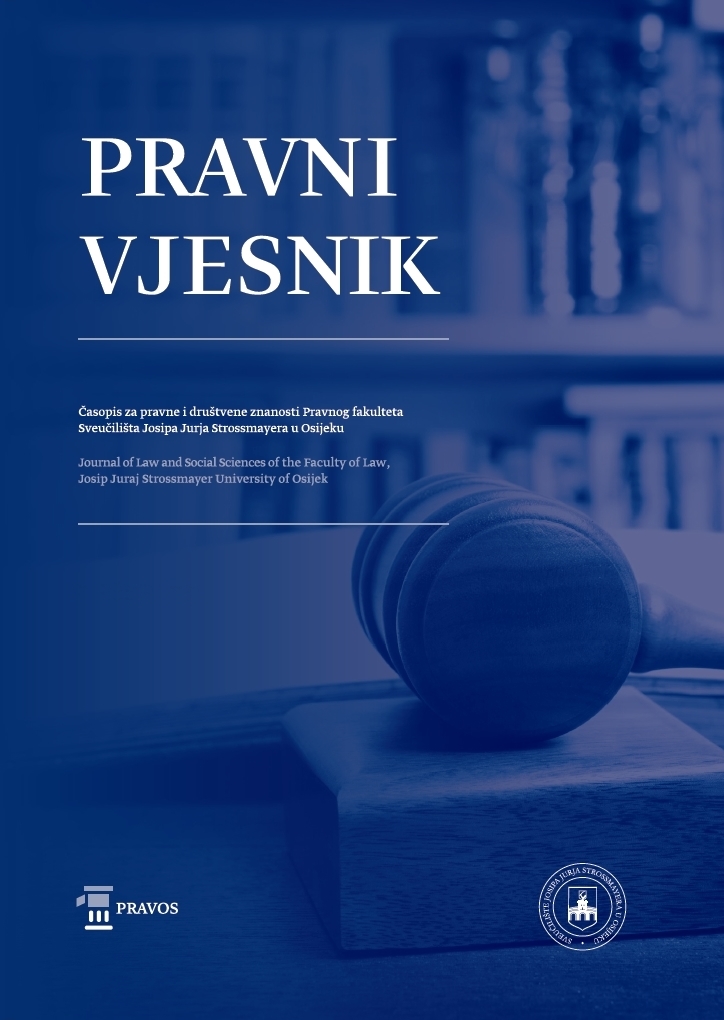BOOK REVIEW : ALEŠ ZAVRŠNIK AND KATJA SIMONČIČ (EDS.), LAW AND ARTIFICIAL INTELLIGENCE: ISSUES OF ETHICS, HUMAN RIGHTS, AND SOCIAL HARM, DOBRA KNJIGA, SARAJEVO, 2023. Dobra knjiga
DOI:
https://doi.org/10.25234/pv/29074Abstract
This book, the result of the research project "Human Rights and Regulation of Artificial Intelligence Worth Advocating," presents a comprehensive approach to issues arising from the ubiquitous implementation of artificial intelligence (AI) in everyday life. The authors addressed the complex and diverse aspects of AI's impact on law, democracy, criminal law, and the ethical considerations of AI development and use.
Published in 2023 by the publisher "Dobra knjiga" from Sarajevo, the book comes with an added value in the form of a foreword by Professor Emeritus Dr. Hajrija Sijerčić-Čolić. Her foreword emphasizes the importance of a systematic and multidimensional approach to the subject, transcending the boundaries of classical legal analysis and encompassing sociological-psychological and philosophical-historical contexts. One of the key contributions of the book is the adaptation of complex and internationalized terms specific to the AI field. Professor Emeritus Dr. Sijerčić-Čolić recognized the challenges of linguistic adaptation to the Bosnian and regional languages and highlighted the importance of creating new terms that correspond to specific linguistic expressions and rules of the region addressed by the book.
Throughout all five chapters and the works of the 16 authors, the book underscores the importance of a serious approach to the development and implementation of AI, highlighting its unlimited potential, along with the dangerous risks that must not be overlooked. Given the rapid development of AI and the potential lag in legal regulation, open questions are posed that serve as an excellent starting point for considering responsible and ethical approaches. Through a holistic approach, the book analyzes general regulatory issues, the impact of AI on law and social processes, and ethical implications. In addition to theoretical discussions, the authors rely on the analysis of specific AI systems, research, regulations, court decisions, and examples, making the book suitable not only for the academic community but also for legal practitioners, advisory bodies, legislative bodies, non-governmental organizations, and the interested public.
This book will serve as a guide through complex concepts, regulations, and research at the intersection of law and AI, providing readers with guidance to face challenges and contribute to solutions.
Downloads
Published
Issue
Section
License
Copyright (c) 2024 Ivan Vidaković

This work is licensed under a Creative Commons Attribution-NonCommercial 4.0 International License.
Authors retain the copyright on the papers published in the Journal, but grant the right of first publication to the Journal. Papers accepted for publication or already published in Pravni vjesnik of the Faculty of Law in Osijek may be published by the author(s) in other publications only with proper notice of its previous publication in Pravni vjesnik.






